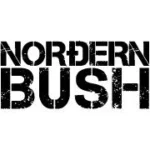While most countries in the western world designate certain remote and less populated state or commune-owned areas for camping and hiking, most of the Nordic countries handle this quite differently and in a way that surprises many from other parts of the world. Basically everyone has the right to free roaming in all of nature, provided that it leaves little or no trace behind. That simple rule has its implications though. All of which comes natural for people who have grown up with these customs as natural part of their lives.
History
How old these customs are is difficult to tell. Around the turn of the 20th century it was already considered an old custom, but the term Everyman’s Right wasn’t coined until the 1940s and not made proper law in Sweden until 1994, due to increased legal pressure from land owners and growing commercialization of land which earlier had been customarily protected against. Norway however made this law already in 1957 with its ‘Friluftsloven‘ (Outdoor Recreation Act). Clearly the custom is far older though and it has been speculated that the reason why it came about and remained in the Nordic countries is explained by the fact that proper feudalism and serfdom was never really established here, with a weak crown and a strong peasantry.
It is quite clear that during the Viking period and the late Middle Ages, there were county laws in place that sought to alleviate the harsh life of the poor and otherwise exposed, while still protecting the rights of the landowners, allowing travellers to pick limited amounts, normally a glove- or hatful, of hazelnuts, acorns and berries in the woods. Up north some of these laws remained in use until early 20th century, where e.g. travellers were still allowed to feed their horses with hay from barns near the roads.
Up until the end of the 18th cent, the Swedish and Norwegian forests were regarded as ‘Allmänning’ (Commons). The riches of the woods were in abundance for a still very small human population ((During the time of Charlemagne, i.e. the mid 700s, the whole European population was no more than ca 30 million people and in the following 700 years it only doubled. The Nordic countries were of course far less densely populated, with ca 900,000 people living in Sweden in 1570 and only ca 1.8 million spread out over Sweden, Norway, Denmark, Iceland and Finland )). This custom didn’t become a real concern for land owners or citizens until the Industrialization period where companies began buying and exploiting large areas of land, thus affecting the local population. Similarly, while the historical population put little pressure on the land with their gathering of resources, today’s situation with a population ten times larger is beginning to cause concern for permanent damage to nature and wildlife.
These laws are currently under pressure as particularly coastal areas have been exploited with holiday and by-the-sea homes, where land owners seek to restrict access to their land and the politically conservative right work to accomodate this, hoping to add tighter restrictions to these customs and laws.
What you have the right to
First a small disclaimer: There is some variation in what is allowed in different countries & regions and while I have tried to describe these here I still advice you to check the customs and laws specifically for the country and region you plan to go to.
Denmark and Iceland are far more restrictive than the other Nordic countries and are for simplicity’s sake therefore not included in this article.
***
Fairly unique, from a western perspective, every person, both citizen and foreigner, in Sweden, Norway, and Finland has, by legal custom, the right to travel on foot, skis, horse or bike over public as well as private land in nature.
You are generally allowed to pass animal or property fencing, provided that it doesn’t break other rules, e.g. risk of damaging cultivated land. In fact, the landowner is not allowed to prohibit access to nature outside of reasonable privacy, which normally counts as about 150 meter distance of private house. Be careful crossing land during hunting season and make sure you know that there is no hunting taking place where you plan to go. Generally hunters do consider safety for others when planning their hunts and directions for shooting, but accidents have happened and colourful clothes can be a good idea.
Everyone is also allowed to travel by boat over public and private water and use a canoe or kayak to travel over sea, lakes, rivers and streams. You may even use private jetties for fishing or swimming, under the condition that it doesn’t disturb the owner.
Scotland and the Baltic countries; Estonia, Latvia and Lithuania also have similar customs and Sweden and Norway have even included this in their respective laws.
The Nordic Everyman’s Right also includes the right to temporarily stay on public and private land for a few nights, even to pick firewood, non-protected wildflowers, berries and mushrooms on that land.
On abandoned properties where there are no buildings left standing you can collect wild-growing fruit and cultivated berries.
You may also drink water from streams and lakes. In Sweden it is usually pure enough to do so, but not as commonly in Norway. Boiling water or using water filter/purification is always good regardless.
There are some small restrictions on the temporary staying though. Camping with a caravan and motor homes can only be done on specific lay-bys and sign-posted parking areas along public roads. Parking on private roads without landowner’s permission is commonly prohibited.
Camping with a tent or hammock is allowed in smaller groups of up to 3 tents/hammocks for a night or two. More than that and you will have to ask the permission of the landowner.
Rules & exceptions
The simple rule is to show respect to the landowner and nature. Don’t harm or destroy, don’t disturb. Don’t cut down or damage living trees, moss or lichen. Don’t disturb wildlife.
There are some specific restrictions in place and the most important ones are the following:
Fruit, nuts & berries
Cultivated fruits and berries are not allowed for picking, unless they are “wild”.
Cloudberries are prohibited from picking in the northernmost counties of Norway, Sweden and Finland for the benefit of the local Sami population.
In Sweden, nuts and acorn from growing trees are not allowed for picking. In Finland nuts and acorn too are allowed to be picked.
Hunting
Hunting rights generally belong to the landowner and permission needs to be given by the hunting rights owner.
In Sweden, as a citizen, you also need to have a hunting permit, meaning passing a 5-part examination and paying a yearly fee. You also need to have a rifle license if you wish to own your own rifle.
Foreigners who wish to hunt need to obtain a hunting license in the Nordic country they wish to hunt in. For that they need to be able to prove that they are allowed to hunt in their home country.
In Sweden hunting of game like moose, deer, doe, boar, fox, beaver, badger, hare, ferret, mink & marten is restricted to different periods of season in different places. The same goes for a whole range of birds like duck, goosander, fieldfare, grouse, pheasant, goose, mallard, gulls, crow, magpie, blackcock, capercaillie, dove and rook.
Similar regulations are in place for the other Nordic countries. Contact the municipal authorities for details concerning this.
Fishing
In Norway, children under 16 have the right to fish without a license. Saltwater angling with a rod is not licensed.
In Sweden, saltwater angling with a rod is not licensed for both Swedish citizens and foreigners.
Private waters can be restricted to fishing license but public waters are license free. Some private waters along the coasts and in the five largest lakes, Mälaren, Vänern, Vättern, Hjälmaren and Storsjön are also license free.
Fishing with nets, trolling and tip-up fishing is not permitted without a license.
In Finland, all fishing with a rod is free for still water.
Bird eggs
Picking bird eggs is not permitted.
Minerals
Minerals like rocks and pebbles are not allowed to be picked.
Horse riding
Before arranging organised horse riding events or regular horse riding in an area you need to obtain permission from the land owner. The basic advice again is “Don’t destroy, don’t disturb”. For that reason, riding on hard ground is preferable to soft trails or ski trails.
Dogs
In Sweden dogs are not allowed to run loose in the countryside between 1 March and 20 August , to protect game. At any time of the year, dogs must be kept under close control to protect all wildlife.
Cultivated land, within sight, gardens and animal enclosures
You are not allowed to cross cultivated lands such as plantations, gardens or fields, since that risks damaging the crops and plants.
Private land can be crossed, but should be done so that it doesn’t disturb the owner. There is no real fixed distance but generally this means roughly a 150 m zone from private houses. Access to beaches is normally not restricted by the same custom.
Animal enclosures may be crossed but keep in mind that some animals can be aggressive especially being protective of their offspring. Always close the gates properly.
Private ‘Keep Out’ signs & fencing
Sometimes landowners attempt to restrict access to their lands by putting up signs. However, landowners have no right to do so for land that fall under public access customs and law.
Similarly, landowners are not allowed to block access to land that fall under public access customs and law.
National parks & animal & nature reserves
These areas can have various specific and more restrictive rules which are normally posted on noticeboards around the area.
In many raising a tent is only allowed on designated areas and in some it is banned altogether. It may also depend on season.
Fires are sometimes completely banned or may be allowed only in purpose-made fireplaces.
Picking fruits and berries can be more restricted and even forbidden altogether.
Dogs must be kept on a leash and in some national reserves they are not allowed at all.
Military areas, protected civilian areas & golf courses
Military areas are especially restricted to foreigners and are usually clearly marked as such. However, even citizens are prohibited from entering protected military areas.
Sensitive areas such as nuclear power plants are enclosed and trespassing is forbidden.
As it is forbidden, you may well be arrested and placed in custody for trespassing.
For golf courses, the cultivated grass is very sensitive to damage so crossing it is prohibited. Disturbing the players is naturally not allowed.
Fire
Making campfires is allowed in Sweden and Norway, but can be restricted or forbidden locally in dry seasons due to risk of wildfire.
In Finland, camp fires may not be lit without the landowner’s permission.
Do not make fires on moss, peat bogs or humus-rich forest soil as the fire can spread underground, even after you think you have put it out properly.
Do not make fires on or next to rock as it may crack the rock, thus causing irreparable damage.
You are not allowed to cut down living trees or shrub, or to remove branches, twigs or bark from living trees. Fallen trees must not be used for fire.
Camp stoves can be used, even during a fire ban.
Noise & pollution
Naturally, you are expected not to disturb other people or wildlife with noise. So don’t bring your boombox or bluetooth phone speakers. Be considerate to other hikers in the area with campfire singing…
Also pick up all trash and leave nothing behind. Toilet paper should be dug down in a hole.
***
I hope this has given a little bit of insight into the freedom this offers both to citizens and guests of the Nordic countries. Just remember to act with care and consideration both for nature and others who enjoy it, and not least for the landowners whose hospitality you benefit from. Future generations depend on your good behaviour.
Read more here:
Environment Norway: Access Rights
Environment Finland: Everyman’s Rights





Thank you Roger, this information is really helpful. I will be heading to Finland and Sweden this summer to enjoy the freedoms they offer. Once again thank you for the information. Regards James